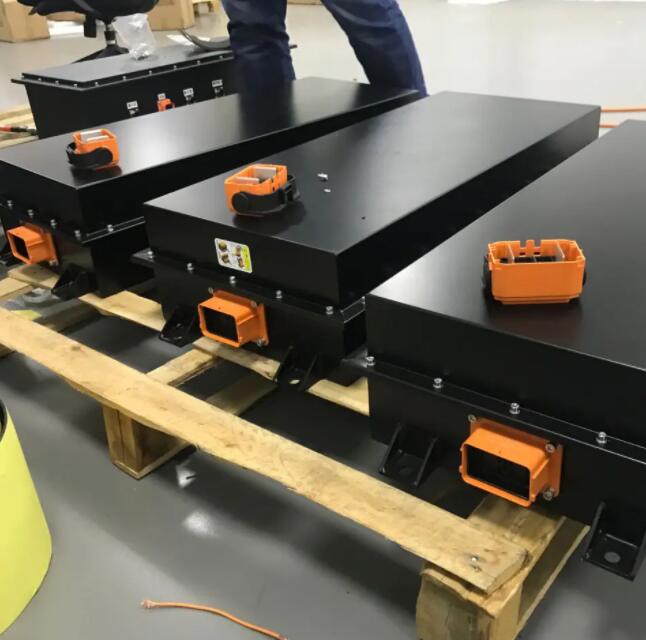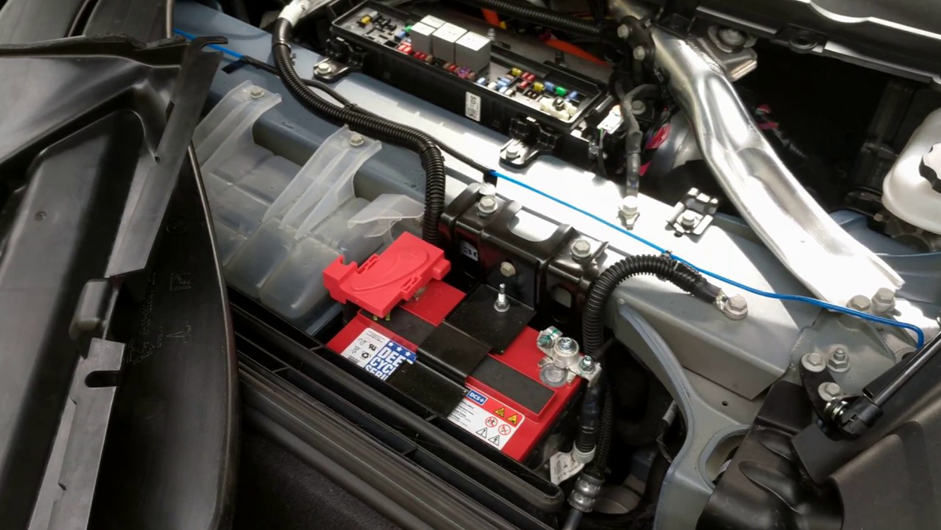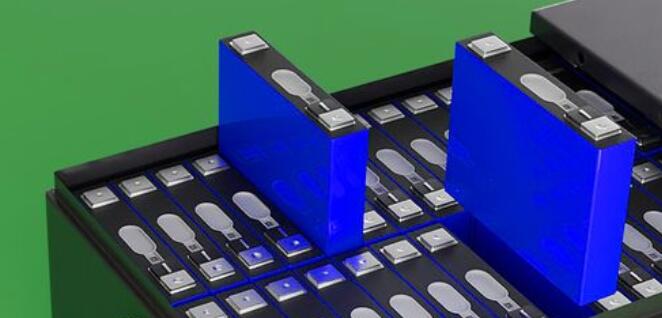electric vehicles Lithium battery suppliers
electric vehicles Lithium battery
Electric vehicles (EVs) typically use lithium-ion batteries as their primary source of energy storage. Lithium-ion batteries are a type of rechargeable battery that have become the preferred choice for EVs due to their high energy density, long lifespan, and relatively lightweight nature compared to other battery technologies.
Here are some key points about lithium batteries in electric vehicles:
Composition: Lithium-ion batteries used in EVs consist of multiple cells, each containing a positive electrode (cathode), negative electrode (anode), and an electrolyte solution. The cathode typically contains lithium compounds, such as lithium cobalt oxide (LiCoO2), lithium iron phosphate (LiFePO4), or lithium nickel manganese cobalt oxide (LiNiMnCoO2). The anode is usually made of graphite.
Energy Density: Lithium-ion batteries have a high energy density, meaning they can store a significant amount of energy in a relatively small and lightweight package. This allows electric vehicles to have longer driving ranges and higher performance capabilities.
Charging and Discharging: Lithium-ion batteries can be charged and discharged efficiently, making them suitable for electric vehicles. They can store energy from the electric grid during charging and deliver it to power the vehicle’s electric motor during discharging.
Range and Performance: The energy density of lithium-ion batteries enables EVs to achieve longer driving ranges compared to other battery technologies. The performance of EVs, such as acceleration and top speed, is also influenced by the power output and efficiency of the battery.
Lifespan: The lifespan of lithium-ion batteries is typically measured in charge cycles, which refers to the number of times a battery can be charged and discharged before its capacity starts to degrade significantly. The lifespan can vary depending on factors such as battery chemistry, usage patterns, temperature conditions, and maintenance. Manufacturers aim to develop batteries with longer lifespans to meet the demands of EV owners.
Safety Considerations: While lithium-ion batteries are generally safe, there have been rare instances of thermal runaway or battery fires. Battery management systems in EVs monitor and control factors like temperature, voltage, and current to ensure safe operation and prevent overcharging or overheating.
Recycling and Sustainability: The recycling of lithium-ion batteries is important to recover valuable materials and reduce environmental impact. Battery manufacturers and researchers are continuously working on improving recycling processes to maximize resource recovery. Additionally, efforts are being made to develop sustainable and environmentally friendly methods for battery production.

Why Choose Lithium Battery For electric vehicles?
High Energy Density
Lithium-ion batteries have a high energy density, which means they can store a large amount of energy in a relatively small and lightweight package. This allows EVs to have longer driving ranges and higher performance capabilities.
Lightweight
Lithium-ion batteries are lightweight compared to other battery technologies, such as lead-acid batteries. This reduces the overall weight of the vehicle, improving its energy efficiency and handling.
Fast Charging
Lithium-ion batteries can be charged at a faster rate compared to other battery technologies. This means EVs can be recharged more quickly, providing greater convenience to drivers.
Efficiency
Lithium-ion batteries have a high charge and discharge efficiency, meaning they can convert a large percentage of stored energy into actual power for the electric motor. This translates to better overall energy efficiency and longer driving ranges.
Longer Lifespan
Lithium-ion batteries generally have a longer lifespan compared to other types of batteries used in EVs. They can withstand a higher number of charge cycles before their capacity starts to degrade significantly. This results in reduced maintenance and replacement costs for EV owners.
Environmental Impact
Compared to internal combustion engine vehicles, EVs powered by lithium-ion batteries produce zero tailpipe emissions, contributing to improved air quality and reduced greenhouse gas emissions. Furthermore, lithium-ion batteries can be recycled, allowing for the recovery of valuable materials and reducing environmental impact.
Technological Advancements
Lithium-ion battery technology has been extensively researched and developed over the years, leading to continuous improvements in performance, safety, and cost. Ongoing advancements and investments in lithium-ion batteries for EVs contribute to the overall growth and development of the electric vehicle industry.
While there are other types of batteries available for electric vehicles, such as nickel-metal hydride (NiMH) batteries, lithium-ion batteries currently offer the best combination of energy density, weight, charging speed, efficiency, and overall performance. As a result, they have become the dominant choice for powering electric vehicles and are expected to continue playing a significant role in the future of sustainable transportation.

-
 Introduction: Being stranded on the side of the road due to a dead car battery is something that no one wants to experience. It is frustrating, inconvenient, and can be dangerous if it happens at night or in a remote location. However, with the invention of portable car starter battery packs, you can now easily jumpstart your car without needing...اقرأ أكثر
Introduction: Being stranded on the side of the road due to a dead car battery is something that no one wants to experience. It is frustrating, inconvenient, and can be dangerous if it happens at night or in a remote location. However, with the invention of portable car starter battery packs, you can now easily jumpstart your car without needing...اقرأ أكثر -
 Lithium Iron Phosphate (LiFePO4) batteries are a type of rechargeable battery that have quickly gained popularity in various applications, including the automotive industry. LiFePO4 batteries are known for their high energy density, long lifespan, and excellent safety features, making them a reliable and efficient solution for starting vehicles. Compared to traditional lead-acid batteries, which have been used in vehicles...اقرأ أكثر
Lithium Iron Phosphate (LiFePO4) batteries are a type of rechargeable battery that have quickly gained popularity in various applications, including the automotive industry. LiFePO4 batteries are known for their high energy density, long lifespan, and excellent safety features, making them a reliable and efficient solution for starting vehicles. Compared to traditional lead-acid batteries, which have been used in vehicles...اقرأ أكثر -
 Introduction: In recent years, the agricultural sector has witnessed a significant revolution in terms of technological advancements. One such revolution has been the development and use of high-power lithium batteries. These batteries have transformed the way agricultural tools and equipment function, providing farmers with greater efficiency, productivity, and sustainability. This article aims to explore the impact of high-power lithium...اقرأ أكثر
Introduction: In recent years, the agricultural sector has witnessed a significant revolution in terms of technological advancements. One such revolution has been the development and use of high-power lithium batteries. These batteries have transformed the way agricultural tools and equipment function, providing farmers with greater efficiency, productivity, and sustainability. This article aims to explore the impact of high-power lithium...اقرأ أكثر -
 In today's fast-paced world, people rely heavily on technology to complete their daily tasks. From smartphones to laptops, from electric vehicles to renewable energy sources, all require a reliable and long-lasting power source. The 12V 100Ah LiFePO4 battery is one of the best options available in the market today. LiFePO4 stands for Lithium Iron Phosphate, a type of lithium-ion...اقرأ أكثر
In today's fast-paced world, people rely heavily on technology to complete their daily tasks. From smartphones to laptops, from electric vehicles to renewable energy sources, all require a reliable and long-lasting power source. The 12V 100Ah LiFePO4 battery is one of the best options available in the market today. LiFePO4 stands for Lithium Iron Phosphate, a type of lithium-ion...اقرأ أكثر -
 In today's modern world, industries rely heavily on power supply to carry out their operations effectively and efficiently. Industrial power products batteries have revolutionized the way businesses function, providing a reliable and uninterrupted source of power. These batteries have become an essential component in various sectors, including manufacturing, transportation, telecommunications, and many more. One of the key advantages of...اقرأ أكثر
In today's modern world, industries rely heavily on power supply to carry out their operations effectively and efficiently. Industrial power products batteries have revolutionized the way businesses function, providing a reliable and uninterrupted source of power. These batteries have become an essential component in various sectors, including manufacturing, transportation, telecommunications, and many more. One of the key advantages of...اقرأ أكثر -
 Low-speed electric vehicles (LSEVs) are compact electric vehicles designed for short-distance travel at relatively low speeds. They are typically used in urban environments, industrial areas, and campuses for transportation purposes. LSEVs are known for their small size, low cost, and eco-friendly operation. Lithium batteries are commonly used in low-speed electric vehicles due to their high energy density, lightweight nature, and...اقرأ أكثر
Low-speed electric vehicles (LSEVs) are compact electric vehicles designed for short-distance travel at relatively low speeds. They are typically used in urban environments, industrial areas, and campuses for transportation purposes. LSEVs are known for their small size, low cost, and eco-friendly operation. Lithium batteries are commonly used in low-speed electric vehicles due to their high energy density, lightweight nature, and...اقرأ أكثر -
 Introduction: In recent years, the field of robotics has seen significant advancements, with smart mobile robots playing a crucial role in numerous industries. These robots are designed to perform various tasks, ranging from warehouse automation to healthcare assistance. One of the key factors in enabling their efficient operation and autonomy is the use of lithium batteries. This article explores the...اقرأ أكثر
Introduction: In recent years, the field of robotics has seen significant advancements, with smart mobile robots playing a crucial role in numerous industries. These robots are designed to perform various tasks, ranging from warehouse automation to healthcare assistance. One of the key factors in enabling their efficient operation and autonomy is the use of lithium batteries. This article explores the...اقرأ أكثر

